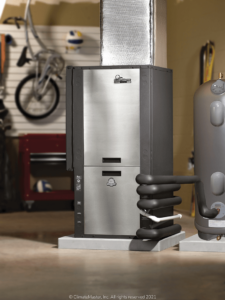 Geothermal heat pumps are a sustainable and energy-efficient solution for heating and cooling homes. If you're searching for "how do geothermal heat pumps work?","geothermal air conditioning repair," "Climatemaster geothermal repair," "geothermal heating repair near me," or "geothermal heating and cooling repair near me," you're in the right place. In this comprehensive guide, we'll explain how geothermal heat pumps work and why they are gaining popularity. We'll also discuss geothermal heat pump maintenance, cost considerations, and finding the right geothermal company for your needs.
Geothermal heat pumps are a sustainable and energy-efficient solution for heating and cooling homes. If you're searching for "how do geothermal heat pumps work?","geothermal air conditioning repair," "Climatemaster geothermal repair," "geothermal heating repair near me," or "geothermal heating and cooling repair near me," you're in the right place. In this comprehensive guide, we'll explain how geothermal heat pumps work and why they are gaining popularity. We'll also discuss geothermal heat pump maintenance, cost considerations, and finding the right geothermal company for your needs.
Chapter 1: Understanding Geothermal Heat Pumps
How Do Geothermal Heat Pumps Work? Geothermal heat pumps, often referred to as ground-source heat pumps, utilize the Earth's stable temperature below the surface to heat and cool your home. Unlike traditional HVAC systems, which rely on the external air temperature, geothermal heat pumps tap into the Earth's consistent thermal energy.
1.1 Geothermal Heat Pump Components
Geothermal heat pump systems consist of three main components:
- The Ground Loop: This is a network of pipes buried underground, typically in a horizontal or vertical configuration, filled with a water-based solution. The ground loop absorbs heat from the Earth during winter and releases heat into the Earth during summer.
- Heat Pump Unit: This is the indoor component responsible for transferring heat between the ground loop and your home. It contains a refrigerant that circulates between the indoor and outdoor coils.
- Ductwork or Radiant Heating System: The distribution system within your home, either air ducts or radiant heating, distributes the conditioned air.
Chapter 2: How Do Geothermal Heat Pumps Work?
2.1 Heating Mode
In winter, the geothermal heat pump extracts heat from the Earth through the ground loop. The heat pump unit compresses the refrigerant, raising its temperature. The hot refrigerant then transfers heat to the indoor air via the distribution system. This warm air circulates through your home, providing heating.
2.2 Cooling Mode
During the summer, the process is reversed. The heat pump unit takes heat from the indoor air and transfers it to the ground loop. The cool, dehumidified air is distributed throughout your home, providing cooling. This dual functionality makes geothermal heat pumps highly efficient year-round.
Chapter 3: Benefits of Geothermal Heat Pumps
3.1 Energy Efficiency
Geothermal heat pumps are exceptionally energy-efficient, with a high coefficient of performance (COP). They can produce up to four units of heating or cooling for every unit of electricity consumed, reducing your energy bills.
3.2 Environmental Sustainability
By relying on the Earth's renewable energy, geothermal heat pumps significantly reduce greenhouse gas emissions. They have a minimal environmental impact compared to conventional heating and cooling systems.
Chapter 4: Geothermal Heat Pump Maintenance
To ensure your geothermal heat pump operates optimally and avoids the need for geothermal air conditioning repair, regular maintenance is essential. Here are some maintenance tasks to consider:
4.1 Annual Inspections: Schedule annual inspections with a geothermal HVAC specialist to check for any issues and ensure all components are functioning correctly.
4.2 Filter Replacement: Replace air filters as recommended by the manufacturer to maintain indoor air quality and system efficiency.
4.3 Check Ground Loop: Periodically inspect the ground loop for leaks, damage, or efficiency issues. Address any problems promptly to avoid costly repairs.
Chapter 5: Geothermal Heat Pump Costs
5.1 Installation Costs
The initial cost of installing a geothermal heat pump is higher than traditional HVAC systems. Factors affecting installation costs include system size, ground loop type, and your location. However, federal and state incentives, as well as long-term energy savings, can offset the upfront investment.
5.2 Operating Costs
Geothermal heat pumps are highly efficient, resulting in lower monthly utility bills. Over time, you'll likely recoup the installation costs through energy savings.
Chapter 6: Finding a Geothermal Company Near You
When searching for "geothermal companies" or "geothermal installation near me," consider the following tips:
6.1 Experience and Reputation: Choose a company with a track record of successful geothermal installations and repairs.
6.2 Licensing and Certification: Ensure that the company and its technicians are properly licensed and certified.
6.3 References and Reviews: Read customer reviews and ask for references to gauge the company's reliability and customer satisfaction.
Conclusion
Geothermal heat pumps offer an eco-friendly and efficient solution for heating and cooling your home. While they may require initial investment, the long-term benefits are substantial. With proper geothermal heat pump maintenance, you can enjoy energy savings and a comfortable indoor environment. When in need of geothermal air conditioning repair or installation, choose a reputable geothermal company near you to ensure a job well done.


